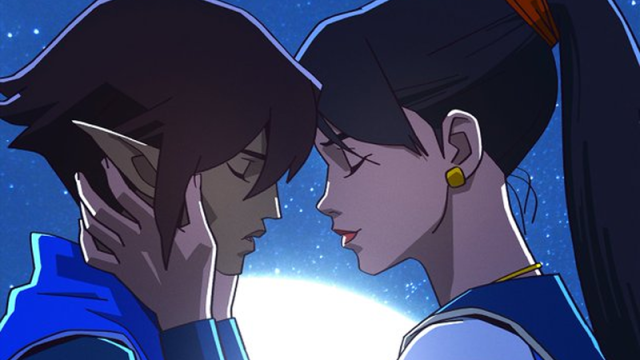Netflix’s latest animated adaptation takes us to the world of BioWare’s beloved fantasy RPG series Dragon Age, as we follow the tormented Elven rogue Miriam when she’s recruited on a deadly heist at the heart of the Tevinter Imperium. But did Absolution get a critical hit or miss? Thankfully, much more of the former than the latter. Here’s what we liked, and didn’t like so much, about it.

We Loved… The Party Dynamics
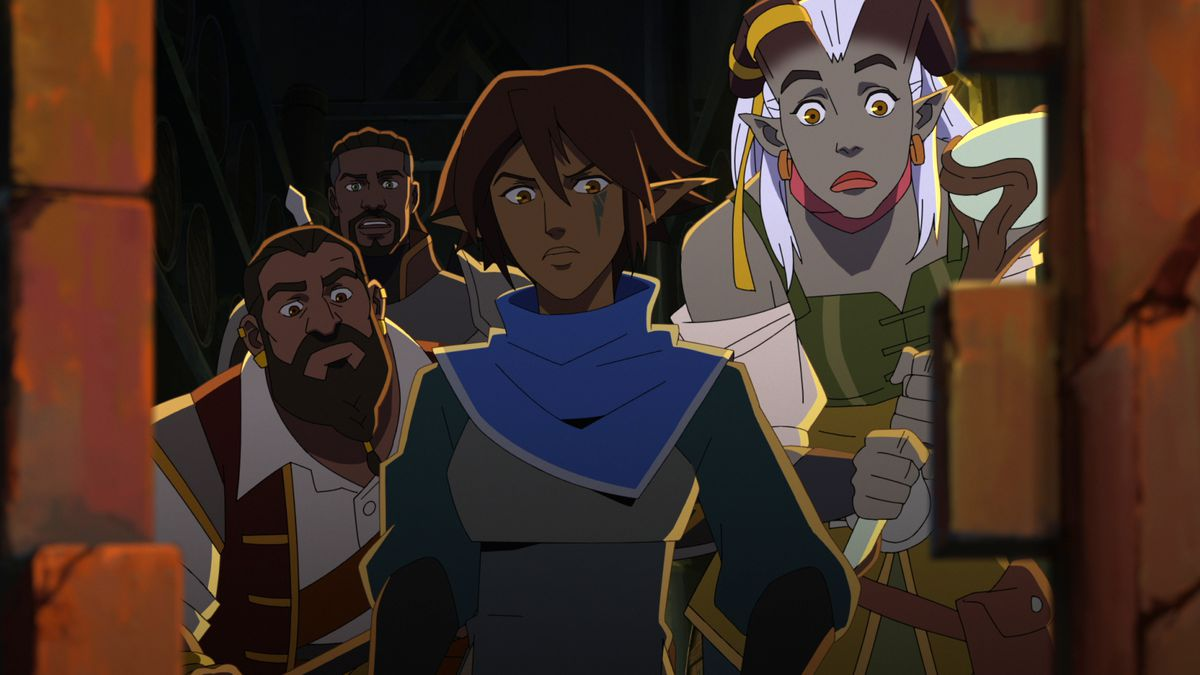
Whenever a fantasy adventure series gathers a party to venture forth, there are two ways of going about: they’re either great, capable heroes united in a common, just cause, or they’re the most absolutely, blessedly stupid idiots winging their way into danger and potential glory. Absolution’s mishmash of unlikely heroes, brought together by the remnants of the Inquisition at the heart of the last Dragon Age game, leans towards the latter — a troubled Elven rogue and her Orlesian (ready: Fantasy France) sellsword friend, a gruff Dwarven warrior, a surprisingly chipper Qunari mage, and two humans from the Inquisition — but there’s just as much of the emotional fuck-uppery as there is adventuring hijinks in this unit that gels very quickly.
These are messy, imperfect people, and Absolution wastes no time getting to the heart of that for some dramatically satisfying character work between the action. Even better is the fact that applies this lens to its antagonists too, creating a foil for Miriam and her allies to clash with in very interesting ways.
We Loved… That It’s Queer as All Hell
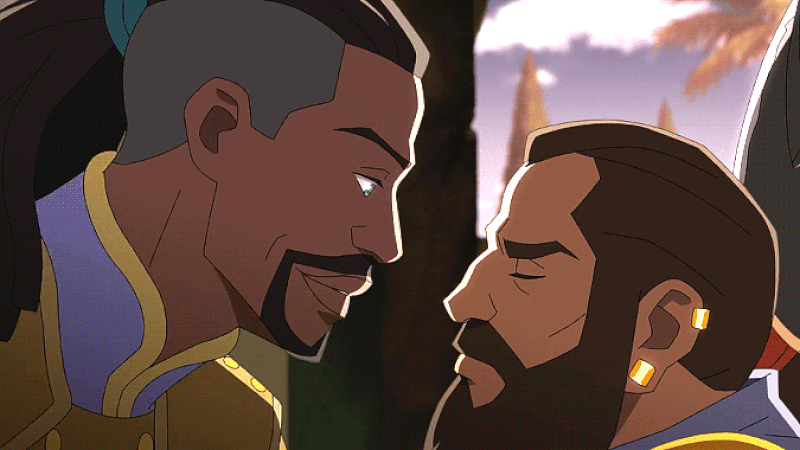
Dragon Age has always been a bit better at handling queerness in its world than, say, BioWare’s sci-fi staple and sibling RPG franchise, Mass Effect, so it’s perhaps no surprise that Absolution continues this trend. But the fact that its casual approach to having queer people exist in its story is just so naturally the heart of Absolution’s intrapersonal dynamics is brilliant — whether it’s the longing between Miriam and her recruiter Hira, and the revelation that they were former lovers, or the burgeoning romance between Miriam’s former mercenary ally Roland and the brusque Dwarf Lacklon. It’s just nice to get a lot of queer goodness without it being about the existence of the representation itself that matters, and instead how much it informs the character dynamics and the drama of the story.
We Loved… Qwydion, Disaster Mage of Our Hearts
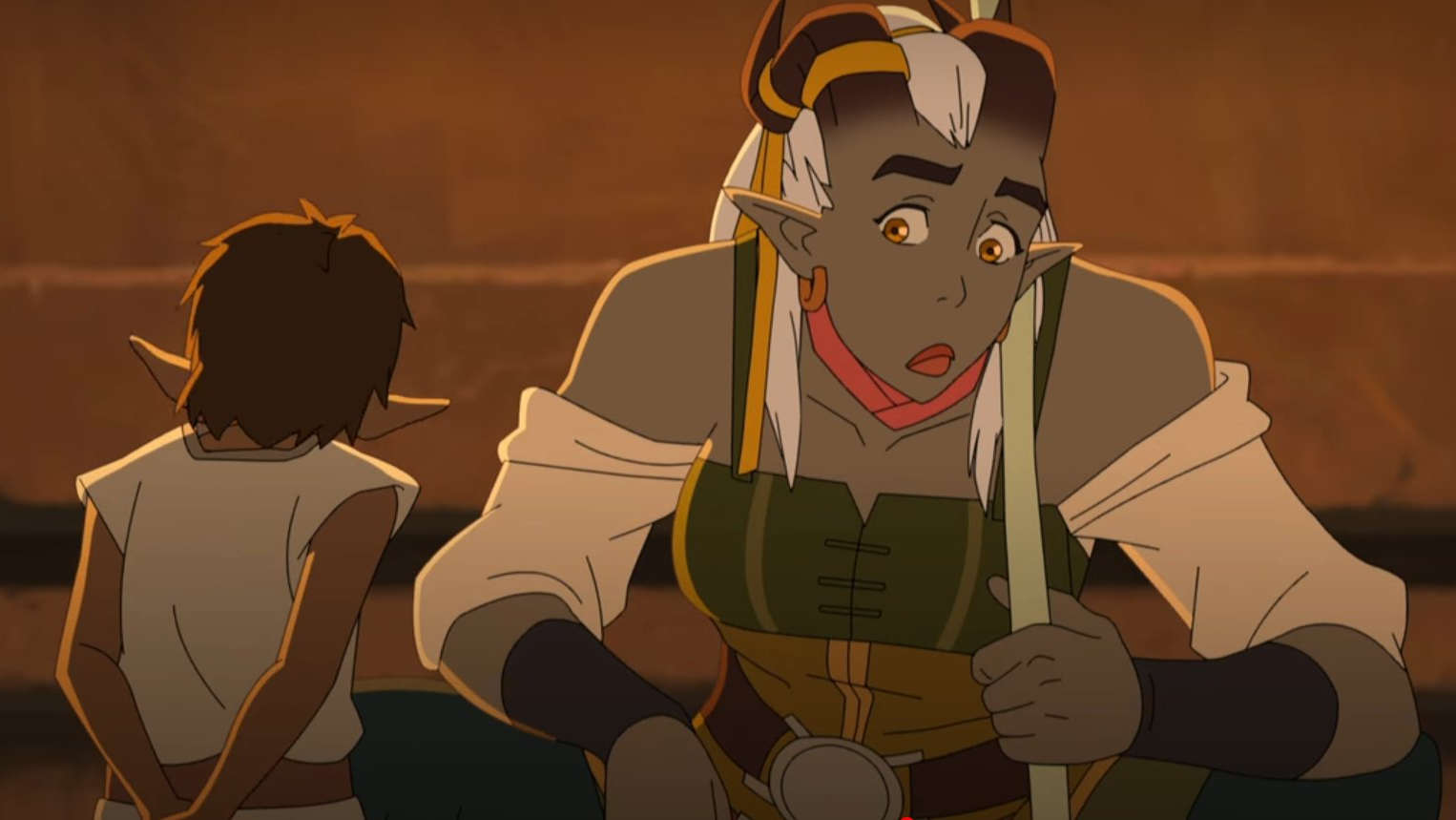
Sure, we already talked about the cast being a ton of fun, but a special shout-out has to go to Qwydion, voiced by Ashley Burch. A member of the horned Qunari species — previously characterised in the games as highly religious, martial warriors, and even in non-typical characterizations like in Inquisition’s Iron Bull, sort of jock-ish personas — Qwydion is the comedic foil of the entire party, and it’s mostly because she acts as an insert for the audience to furiously, curse-ladenly yell at the increasingly bananas mess the gang makes of their heist. She’s also an extremely competent mage with a heart of gold, so it’s not like the gag is that she’s useless; she’s just very funny and very honest about the insanity unfolding around her, and it makes her immediately likable.
We Loved… The Balance of Personal and Worldly Stakes
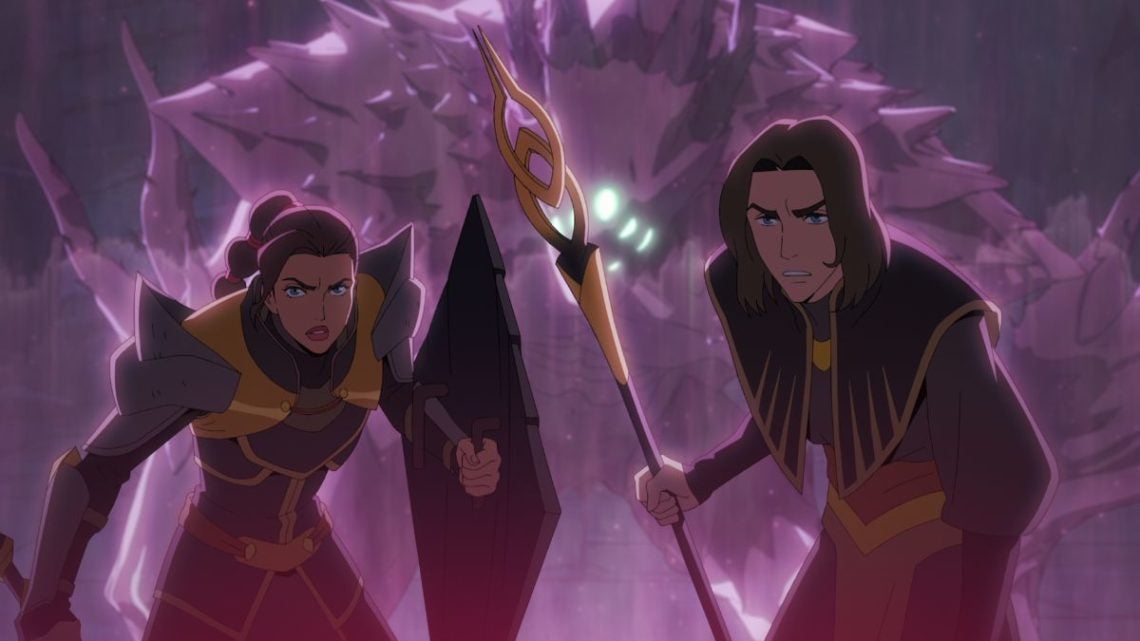
Dragon Age II is the secret best Dragon Age game. But beyond its technical faults, it’s often derided for the fact that, after the nation-spanning existential threat of the Blight in Dragon Age Origins, its narrow focus on a small-time group of unlikely heroes largely gathered around the growing political and religious discord of a single city felt too small for what people expected out of a big, blockbuster fantasy RPG series. Absolution thankfully believes that’s a load of old hokum, and while there are certainly big stakes in its story — diving deep into the mage-driven theocracy of long-time-looming threat in the Dragon Age law, the Tevinter Imperium, and a magical cursed artefact capable of allegedly resurrecting the dead beyond necromancy called the Circulum Infinitus — they’re not really the series’ dramatic focus.
Instead, the time is given to the myriad personal relationships among the heroes and antagonists alike — like Miriam’s surprising connection to the villainous Tevinter Magister seeking to control the Circulum’s power, Rezaren, the fallout of her romantic past with Hira, and the messy interplay between Rezaren and his Tevinter Chantry guard, Templar Commander Tessia. Sure, the Circulum is presented as a magical doohickey with massive ramifications for the world, but of much more interest to Absolution is trying to grasp the power it has over our characters, and the emotional fallout vying for that kind of magic can have on people.
We Loved… That Dragon Age II-Inspired Endgame Twist
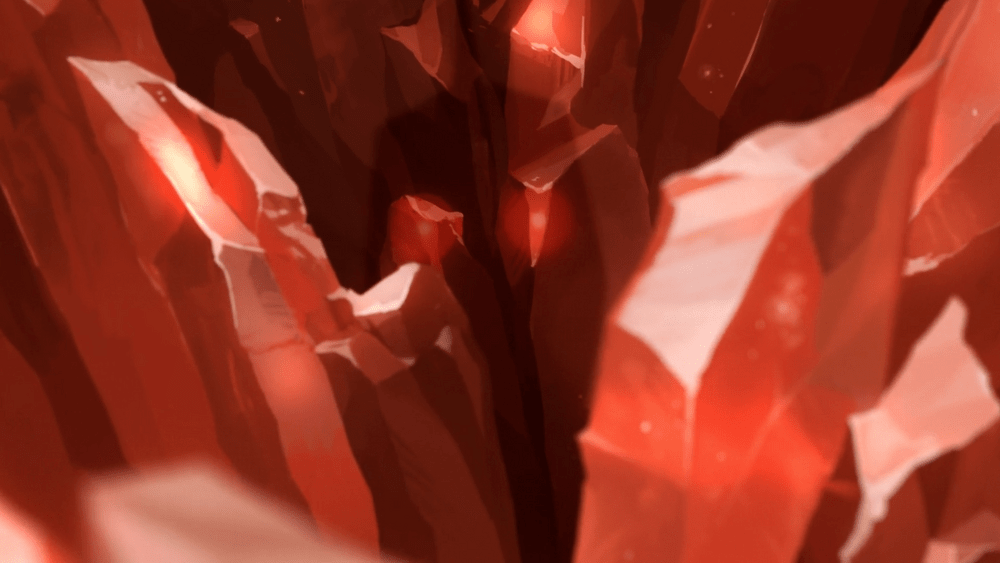
Look: I have made it known already that I am a Dragon Age II ride-or-die kind of guy. Maligned as it is for its limited scope and rushed development, it remains my favourite entry in the series, and I will forever cherish that which the wider Dragon Age fandom looks down upon. So imagine the shriek I let out when Absolution ended with the shrill, sinister tones of Jean Gilpin, revealing that the mysterious “Crimson Knight” that Hira is really working with to get vengeance against her former homeland is none other than the Red-Lyrium crazed Knight-Commander Meredith, the villain of Dragon Age II thought dead by the end of the game.
There were already plenty of Dragon Age II vibes in Absolution, from its smaller stakes to its sense of humour, but dropping the bombshell that Meredith survived her encounter with Hawke and their friends and could be set up as a potential threat to come in either more Absolution or even Dreadwolf was a great surprise. Especially for me, noted Dragon Age II stan.
We Didn’t Love… That It Doesn’t Offer a Great Intro for Dragon Age Newcomers
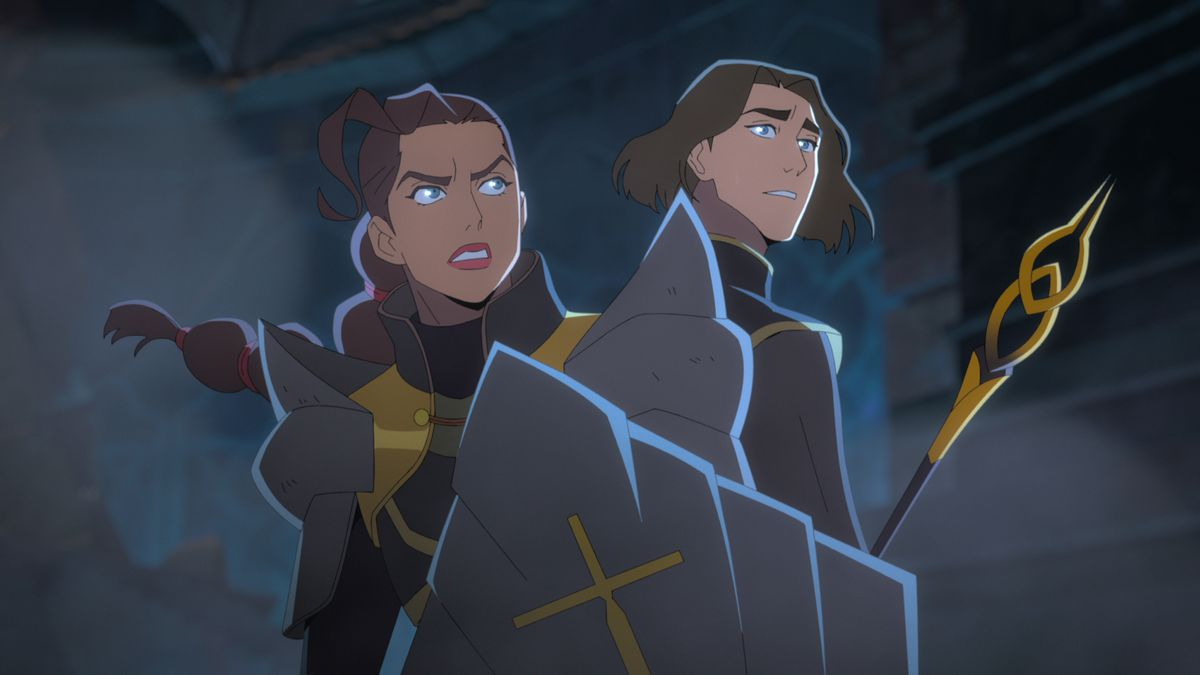
Now, I might have just said I’m an easy mark for any and all connections to Dragon Age II, but it’s admittedly a bold move to tie the endgame of Absolution into a major connection to the supposedly dead villain of — as much as it pains me to personally say it — the least-popular Dragon Age game. It’s kind of emblematic of a lot of Absolution’s vibe, which is very much acting on the presumption that you already are deeply enmeshed in the lore of the games for much of its stakes and world.
There’s little to no explanation for why Elves are so looked down upon, especially in the land of the Tevinter Imperium, and not enough to explore the Imperium’s magical theocracy — and what makes it truly different to the rest of Dragon Age’s world. Blood magic becomes a major element of the story, but there’s likewise not much explained to newcomers about just why it’s so taboo. It’s not that Absolution needs to hold people’s hands about this world, but it sort of flies on by the seat of its pants with a lot of stuff that even people who’ve played all the games — Inquisition, the most recent and arguably most widely played of the series, is eight years old at this point — might need reminding about.
We Didn’t Love… That It Felt Too Short
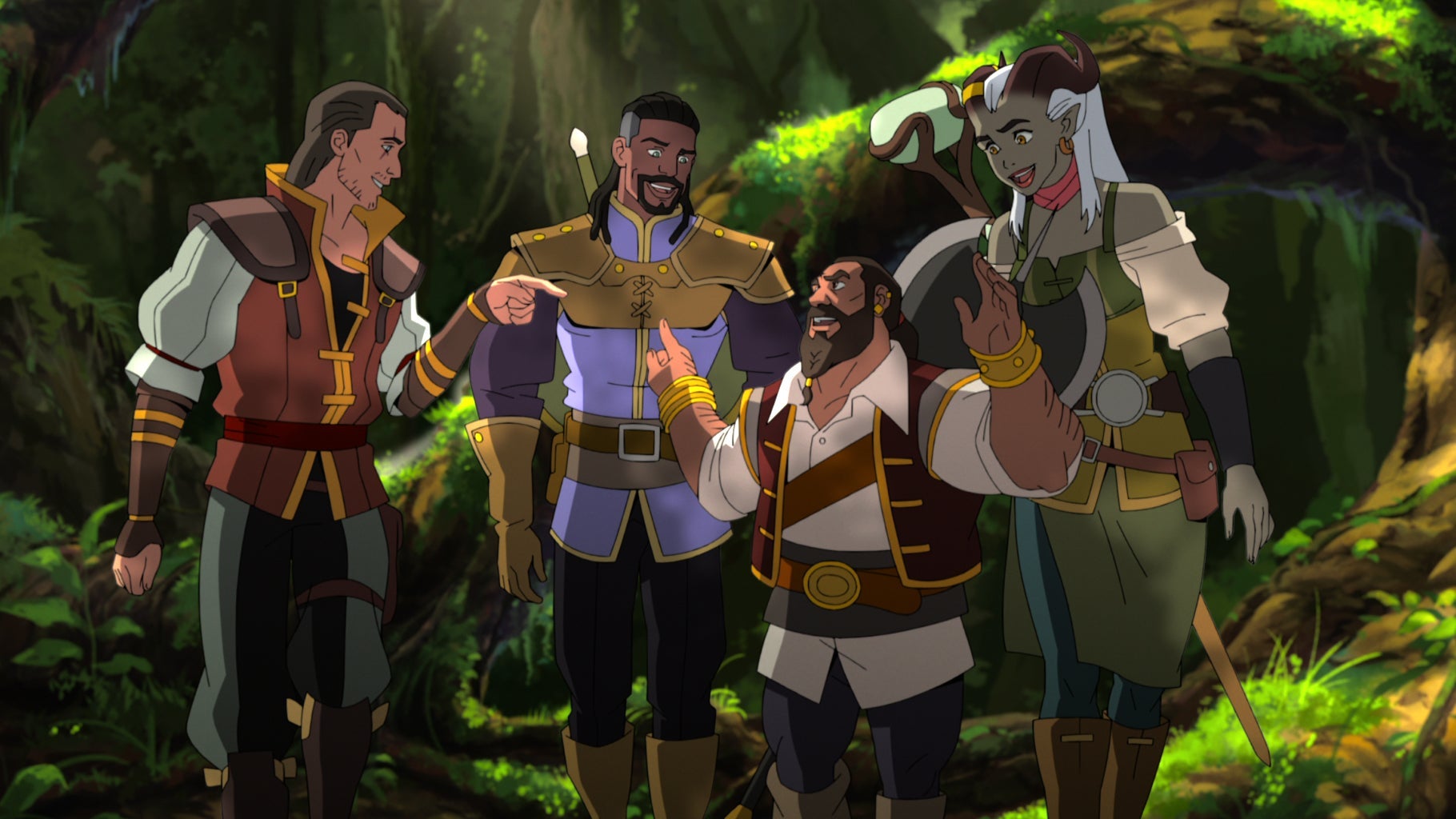
That also plays into another sticking point. On the one hand, Absolution is much like the end goal of its ragtag hero group (even if they kind of mostly fail at it): get in, get out, and don’t overstay the welcome — and it largely does that in a way that few Netflix series do. But on the other, this might be the rare occasion where one of these series needed more than six episodes to really hook people. Absolution is a breezy watch, but some of its beats in the endgame, heavily reliant on you being invested in the connections between the myriad party members and their opponents, would’ve hit much harder if we’d had the chance to spend just a little more time with them. The group comes together and gets over its divisions a little too smoothly, and while their rapport is great, it just would’ve been much more satisfying if we could’ve seen that journey come together over a couple of more episodes, to make Absolution’s knife twists like Hira’s betrayal feel a bit more painful.
